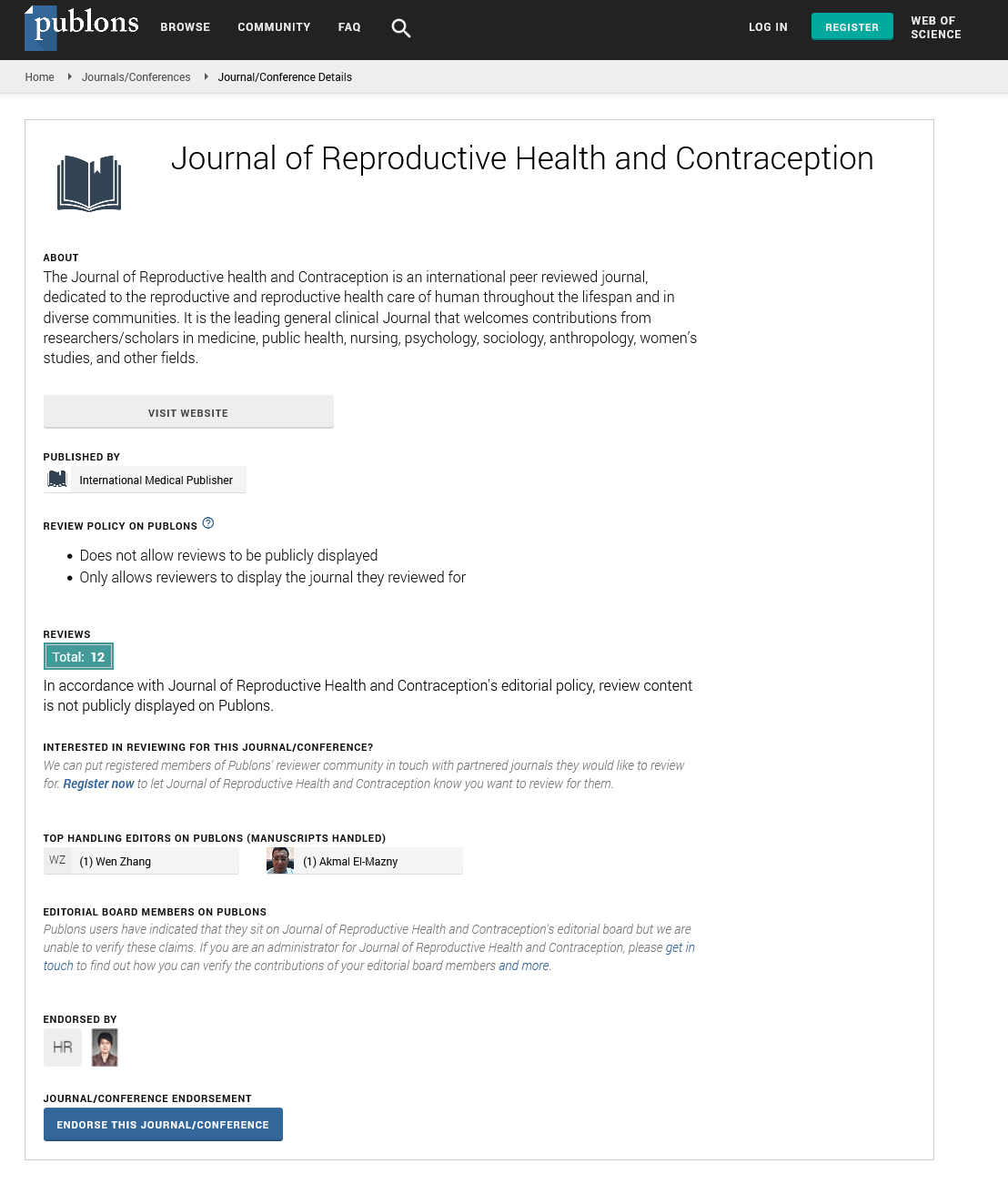ISSN : 2471-9749
Journal of Reproductive Health and Contraception
The impact of inequalities and on mothers mental well being
International Congress on Midwifery and Maternal health - May Webinar
May 19-20, 2021 | Webinar
June Pembroke Hajjaj
North West Healthcare Trust, United Kingdom
ScientificTracks Abstracts: J Contracept Stud
Abstract
The disparity in outcomes in maternity for Black, Asian and Minority Ethnic women giving birth in the UK has been recognized for some time. Coronavirus or Covid-19 has forced this disparity in health inequalities to be elevated to National attention like never before. MBRRACE-UK (2019) provides continual evidence that maternal and perinatal mortality rates were significantly higher for Black, Asian, mixed race and minority ethnics. UK Obstetric Surveillance System (UKOSS 2020) recent report provides further indication of the disproportionate impact in relation to mortality with Black, Asian and Minority Ethnic women. It is suggested that this cannot be simply explained by higher incidence in the main geographical areas with known higher proportions of women from the Black, Asian and Minority Ethnic community, as outcomes were seen when women from areas such as London and West Midlands were excluded. The result also remained in spite the adjustment for age, BMI and co-morbidities. We as Health Care Professionals are supposed to eliminate discrimination, advance equality and opportunity as well as foster good relations with those who we serve. Therefore, there has to be some difficult conversations and discussions which can be uncomfortable in a liminal space, facing issues of possible institutional racism or unconscious bias held and carried out within the provision of our maternity services. In order to start the conversation focus groups were undertaken. Focus groups are designed to obtain thoughts and feelings seeking insight and potential explanations for behaviours, in this instance from both women and ours as the Health care professionals. Themes of Power, not being listened to, the influence of colonialism and perception of self, provided thought provoking reflection and recommendations from the women.
Biography
June Pembroke Hajjaj has an enquiring mind and passion about the consequences of unaddressed inequalities, aiming to improve the physical and psychological safety for Black Asian and Minority Ethnics within maternity. Her frank and contextual evaluation model based on phenomenology understanding the essence of the phenomenon through the lived experience, utilizing focus groups to address this sensitive subject. She teaches on civility, human factors and cultural safety both.
Google Scholar citation report
Citations : 201
Journal of Reproductive Health and Contraception received 201 citations as per Google Scholar report
Journal of Reproductive Health and Contraception peer review process verified at publons
Abstracted/Indexed in
- Google Scholar
- China National Knowledge Infrastructure (CNKI)
- WorldCat
- Publons
Open Access Journals
- Aquaculture & Veterinary Science
- Chemistry & Chemical Sciences
- Clinical Sciences
- Engineering
- General Science
- Genetics & Molecular Biology
- Health Care & Nursing
- Immunology & Microbiology
- Materials Science
- Mathematics & Physics
- Medical Sciences
- Neurology & Psychiatry
- Oncology & Cancer Science
- Pharmaceutical Sciences
